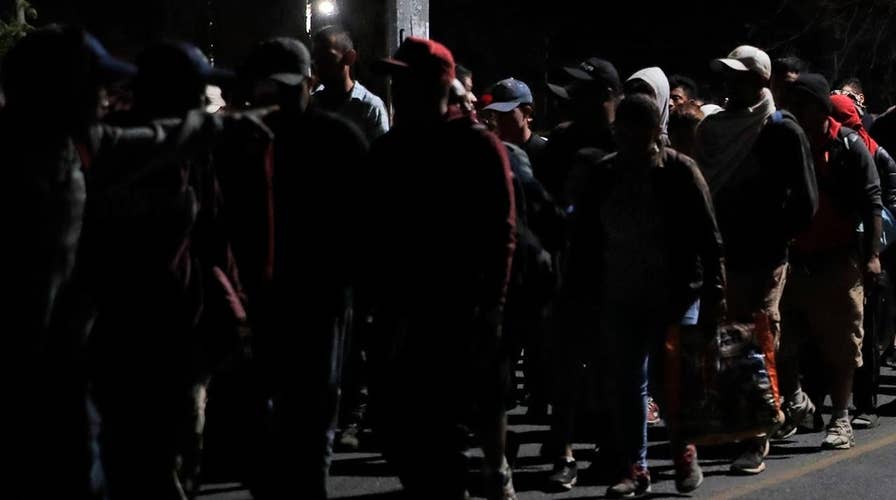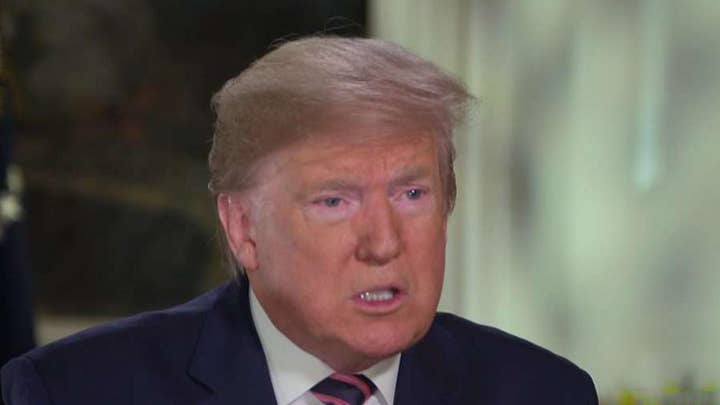Homeland Security reviewing two administration immigration programs looking to expedite deportation process
Former acting ICE director and Fox News contributor Tom Homan weighs in.
The Trump administration on Friday announced that it is expanding the controversial travel ban to include six more countries -- after an almost year-long review by the Department of Homeland Security (DHS) that looked at countries failing to meet certain criteria set by the U.S.
Acting DHS Secretary Chad Wolf told reporters Friday that DHS has undertaken a “systematic review” of all countries.
The six countries being added to the list are Burma, Eritrea, Kyrgyzstan, Nigeria, Tanzania and Sudan. Those are added to the current seven included in the ban: Iran, Libya, North Korea, Somalia, Syria, Venezuela and Yemen.
DHS BOSS WARNS CARAVAN MIGRANTS WILL BE SENT HOME IF THEY REACH US, AMID REPORTS OF VIOLENCE
On Burma, Eritrea, Kyrgyzstan and Nigeria, the restrictions will apply to immigrant visas -- for those seeking to live or work in the U.S. permanently. For Sudan and Tanzania, the restrictions are being placed on diversity visas -- that come from the controversial diversity lottery program that grants visas to prospective immigrants randomly each year.
The initial seven countries have restrictions on both immigrant and non-immigrant visas but Wolf said that the six countries announced Friday are very different from the current seven.
“These countries for the most part want to be helpful, want to do the right thing, have relationships with the U.S. and are in some cases improving relations, but for a variety of different reasons failed to meet those minimum requirements that we laid out,” he said.
“And really the only way to mitigate the risk is to impose these travel restrictions,” he added.
Criteria considered when judging countries included to what extent the countries share information on passports and prospective bad actors, as well as whether the country poses an elevated national security risk in relation to crime, terrorism and illegal immigration.
The initial travel ban sparked chaos and controversy when it was first rolled out in January 2017. Critics claimed it was a discriminatory “Muslim ban,” noting that President Trump had promised such a ban during the campaign and that the initial countries (which did not include North Korea and Venezuela, but did include Chad) were Muslim-majority countries.
After three modifications and multiple court challenges, the ban was upheld in 2018 by the Supreme Court. Wolf said Friday that since then, the DHS has refined its approach to travel restrictions.
“Since that time DHS has enhanced that approach and made a number of processes stronger, allowing for more fidelity on the information we’ve received from each of the countries,” he said.
The latest review began in March, when revised criteria were sent out to all 200 countries, Wolf said. The U.S. requested responses in September and then ranked all 200 countries on their responses -- or failure to respond.
That step led to an interagency assessment process where DHS communicated with the Pentagon, State Department and Office of Director of National Intelligence (ODNI), where officials discussed individual countries; that could include other considerations such as foreign policy and national security efforts in other areas.
“As a result of that, those six countries... bubbled up and those six with the existing seven are among the lowest-ranking countries on our list,” Wolf said.
He said that the countries will be reviewed every six months and that there will be a “robust off-ramp” for countries that improve their security and cooperation with the U.S., noting that Chad was removed from the list in 2018.
CLICK HERE FOR THE FOX NEWS APP
Asked why immigrant visas but not non-immigrant visas (for temporary stays in the U.S.) were being restricted, Wolf said it was because permanent visas make it much harder to remove someone if they are discovered to be a threat.
“We wanted to make sure that these six countries that do have relations with the U.S., we need to mitigate the risk... but we also make sure we want to send a signal that we’re very serious about this but not cripple all of their various visas -- so there’s a number of visas they’re still able to use,” he said.
The expanded travel ban is one of a number of ways the administration is trying to enhance efforts to better vet legal immigration processes. The administration announced Thursday that the public charge rule -- which restricts green cards to immigrants deemed likely to rely on welfare -- will go into effect in February after the Supreme Court allowed it.













































